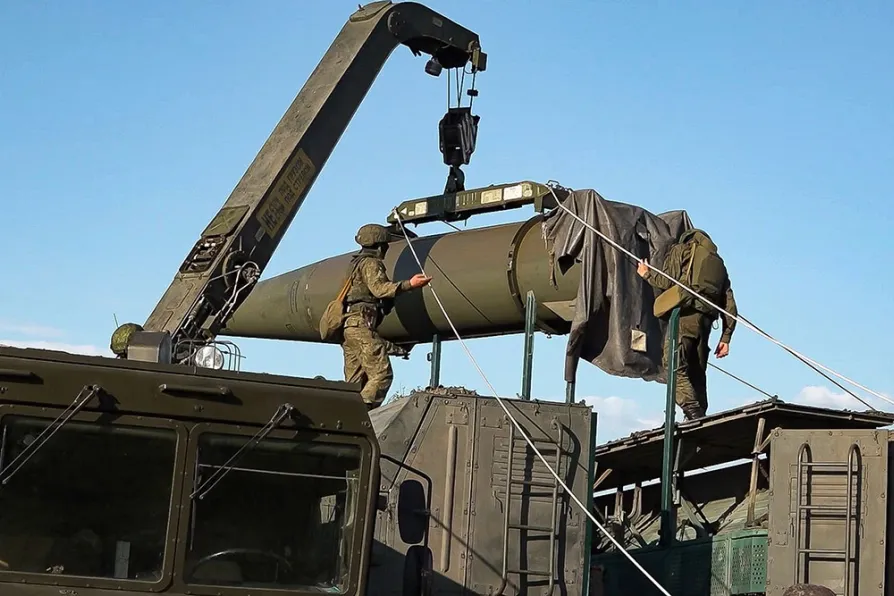Ukraine accuses Russia of launching an ICBM at Dnipro

 In this photo released by Russian Defense Ministry Press Service on May 21, 2024, Russian troops load an Iskander missile as part of drills to train the military for using tactical nuclear weapons at an undisclosed location in Russia
[Russian Defense Ministry Press Service via AP]
In this photo released by Russian Defense Ministry Press Service on May 21, 2024, Russian troops load an Iskander missile as part of drills to train the military for using tactical nuclear weapons at an undisclosed location in Russia
[Russian Defense Ministry Press Service via AP]
UKRAINE accused Russia today of launching an intercontinental ballistic missile at the city of Dnipro, which would be the first time that Moscow has used such a missile in the war.
In a statement on the Telegram messaging app, the Ukrainian air force did not specify exactly the type of missile used but said it had been launched from Russia’s Astrakhan region, which borders the Caspian Sea.
According to the statement, an intercontinental ballistic missile was fired at Dnipro, in the the country’s central-east region, along with eight other missiles. The air force claimed to have shot down six of the missiles.
Similar stories














